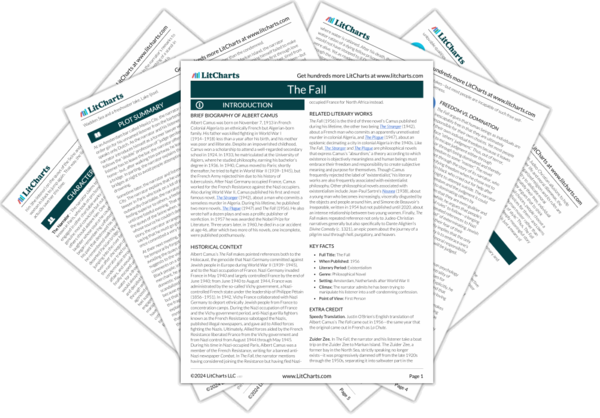The narrator previously claimed that, prior to the evening of the mysterious laughter, he didn’t understand judges’ profession. Yet afterward, having gained greater self-understanding, he realized that he himself was hugely judgmental if anyone crossed him. In the same vein, he realized that all his romantic relationships ultimately existed in service of his only “great love,” himself, and that as a result his relationships with women were always, deep down, a “game,” a form of hypocritical playacting.


